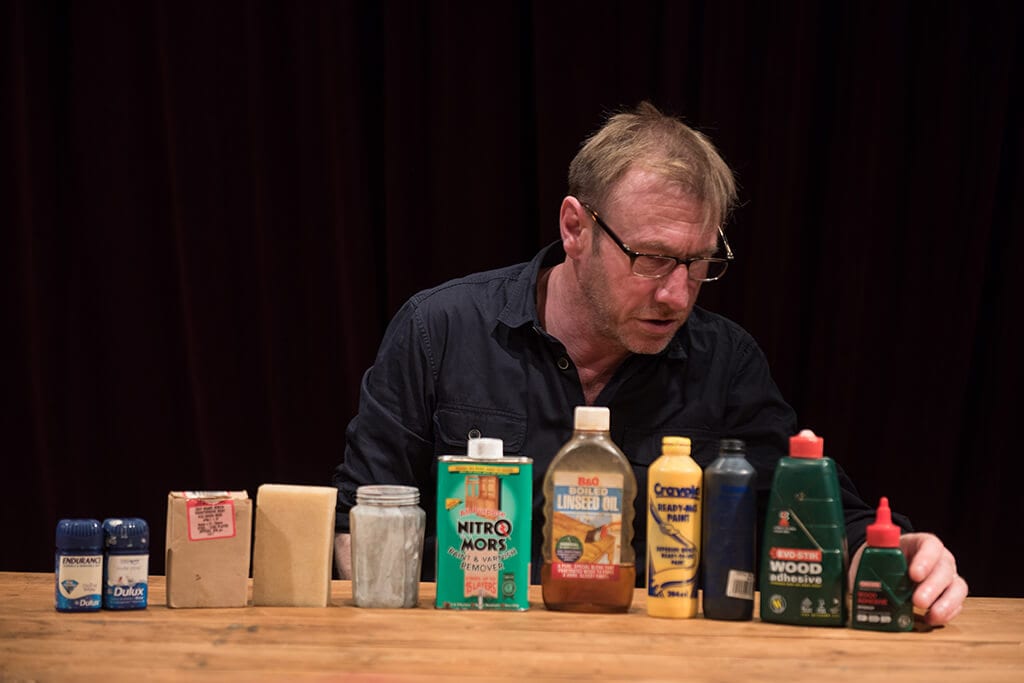While Gregory Doran’s RSC makes its way slowly but surely through the Complete Works of William Shakespeare up in Stratford-upon-Avon (a project that has still got several seasons left to go), Forced Entertainment have raided their pantry to present 1 hours synopses of 36 of the 37 plays over just six days. There are no fancy sets, pricy props or star leads in sight; I saw two comedies and a tragedy in three hours in which the Antipholuses of The Comedy of Errors were ‘played’ by candlesticks, Titus Andronicus by a bottle of Grolsch, and Portia of The Merchant of Venice by a bottle of rose essence.
There is something childishly delightful about Table Top Shakespeare and as deadpan narrators shuffle store cupboard staples around to tell epic stories of love and revenge the audience doesn’t so much laugh as snigger. The first performance I saw was The Comedy of Errors, hilariously narrated by Terry O’Connor who explained an uncooperative prop – a particularly wobbly sponge Dromio – as suffering from ‘sea legs’. O’Connor was particularly brilliant in the scenes between scorned wife Adriana and her sister Luciana, offering a surprisingly insightful feminist reading of the scenes, and with her subtle eye rolls at the laddish jokes of Antipholus and Dromio. Her admission that “it’s really confusing” in one scene change caused yet more giggles but O’Connor forgot a few too many things, leaving big pauses and relying on a visible crib sheet.
A far more assured performance from Robin Arthur followed as he told the story of Titus Andronicus with a cast consisting largely of bottles and, to the biggest laugh of the night, Roman crowds represented by two bags of clementines. As he proved in Forced Entertainment’s The Notebook, Arthur has a great voice for engaging storytelling no matter how nasty the subject matter, and a bottle of shower gel has never been imbued with such tragedy as the one made to stand in for Lavinia. The contrast of the trivial cast and the horrible tragedy was bizarre but very effective, even if one audience member was corpsing during the rape scene.
Though the kitchen cupboard novelty of Table Top Shakespeare begins to wear thin after two hours, its focus on simply telling stories doesn’t. Claire Marshall’s wry and witty The Merchant of Venice made the 10-11pm slot the highlight of the night. Table Top Shakespeare is full of the charm of bedtime stories and bursting with the power of the imagination. I’d love to hear a Table Top audiobook. Director Tim Etchells notes in the programme that the table that becomes the stage is ‘a distant cousin to the “wooden O”, invoked by Shakespeare in Henry V, as the arena for the audience’s collective imagination.’ This humble tone (with a wink of playfulness) is at the core of Table Top Shakespeare, a simple pleasure and a reminder of the importance of the stories themselves in a city whose theatres are already strutting and fretting to celebrate Shakespeare in as grand a fashion as possible in the 400th year since his death.

